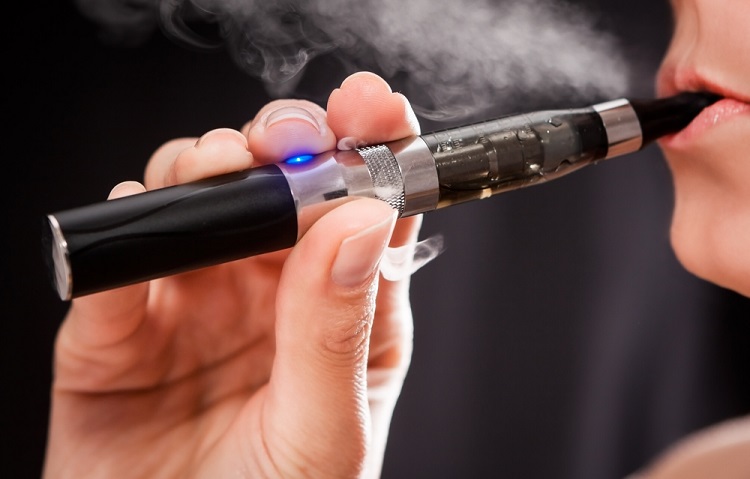E-Cig Risk: Teens Who Vape More Likely to Start Smoking Tobacco

Teens who "vape" in high school are at increased risk for using tobacco cigarettes in the future, a new study found.
The study discovered that teens who use electronic cigarettes, a practice also referred to as vaping, in the 12th grade were four times more likely to start smoking tobacco cigarettes within the next year, compared with teens who didn't vape in the 12th grade.
The findings "contribute to the growing body of evidence supporting vaping as a 'one-way bridge' to cigarette smoking among youth," the researchers wrote in their study, published online today (Feb. 7) in the journal Tobacco Control.
When using an electronic cigarette, teens inhale vapor that may contain nicotine, as well as flavors such as bubble gum or milk-chocolate cream, the researchers said.
E-cigarettes are often advertised as safer alternatives to tobacco cigarettes, because the electronic variety's vapor contains fewer chemicals known to be harmful to humans, compared with traditional cigarette smoke. However, researchers are still investigating the health effects of e-cigarettes, and some studies have suggested that e-cigarette use still poses health hazards, such as an increased risk for markers of heart disease.
Other studies have suggested that teens who use e-cigarettes are more likely to start smoking regular tobacco cigarettes, compared to teens who don't use e-cigarettes. But these earlier studies involved teens in a single city or state, so the results were not necessarily representative of the U.S. population, the researchers of the new study said. [4 Myths About E-Cigarettes]
The new research involved a nationally representative sample of about 350 teens who were randomly selected from a larger survey of 122 schools around the country. Subjects were first surveyed on their smoking and vaping habits in 12th grade, and then surveyed again one year later.
Get the world’s most fascinating discoveries delivered straight to your inbox.
Among teens who said they vaped in the 12th grade but had never tried a tobacco cigarette, 31 percent went on to try tobacco cigarettes in the next year, the study found. In contrast, among teens who hadn't vaped or smoked tobacco cigarettes in the 12th grade, just 7 percent went on to try tobacco cigarettes in the next year, the survey revealed.
The use of e-cigarettes may desensitize teens to the risks of tobacco cigarettes, explaining the findings in the study, the researchers said. Although 80 percent of 12th graders from the study said they thought smoking cigarettes posed a "great risk" of harm, those who vaped in 12th grade were four times more likely to change their views (saying cigarettes posed less of a risk) one year later, compared with those who didn't vape in 12th grade.
"Youth who begin to vape primarily to experiment and because vaping tastes good (the most common reasons for vaping) may detect no immediate health consequences and [so] conclude that the dangers of smoking are exaggerated," the researchers wrote.
The results also suggest vaping leads former cigarette smokers to return to smoking. This was seen in the teens who had smoked in the past but hadn't smoked recently when they took the first survey, in the 12th grade. In that group, those who vaped in the 12th grade were twice as likely to say they smoked cigarettes again one year later, compared to those who didn't vape in the 12th grade.
Still, the researchers noted that the new study cannot prove that vaping caused teens to start smoking cigarettes. The study did take into account some factors that could be associated with increased risk of smoking, such as the respondents' gender and ethnicity, as well as their parents' educational attainment. But there are still other factors the current study failed to address that could influence people's risk of smoking, the researchers said. This includes the teens' affiliation with smokers in the community, the perception of their friends' attitudes toward smoking and their level of rebelliousness, the investigators said.
Original article on Live Science.

Rachael is a Live Science contributor, and was a former channel editor and senior writer for Live Science between 2010 and 2022. She has a master's degree in journalism from New York University's Science, Health and Environmental Reporting Program. She also holds a B.S. in molecular biology and an M.S. in biology from the University of California, San Diego. Her work has appeared in Scienceline, The Washington Post and Scientific American.


